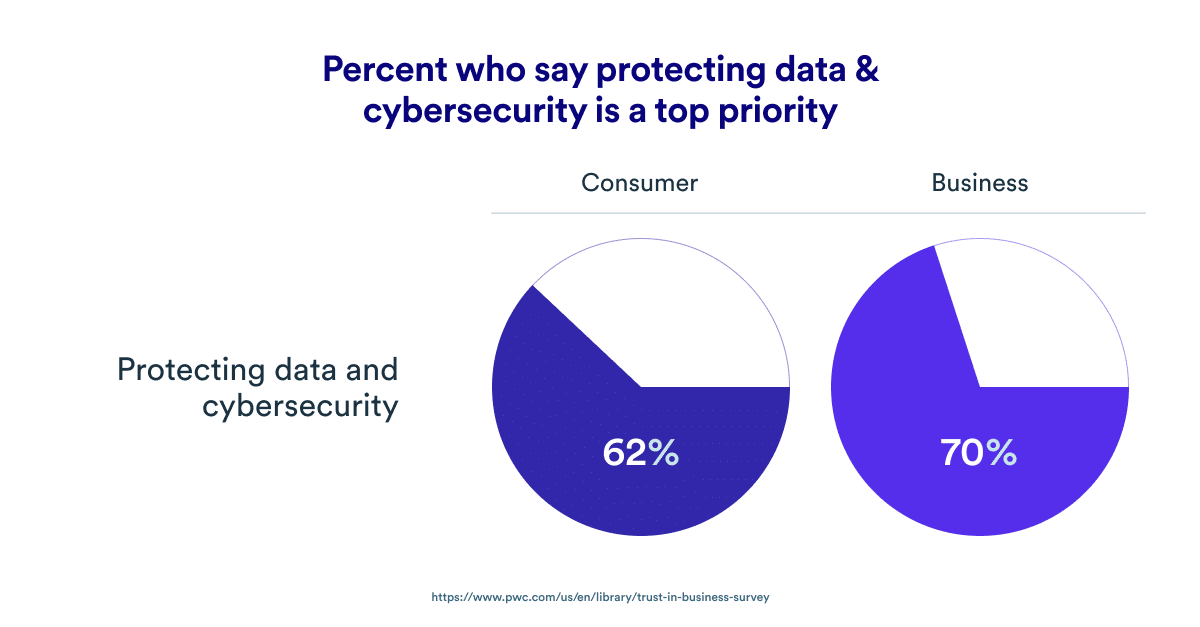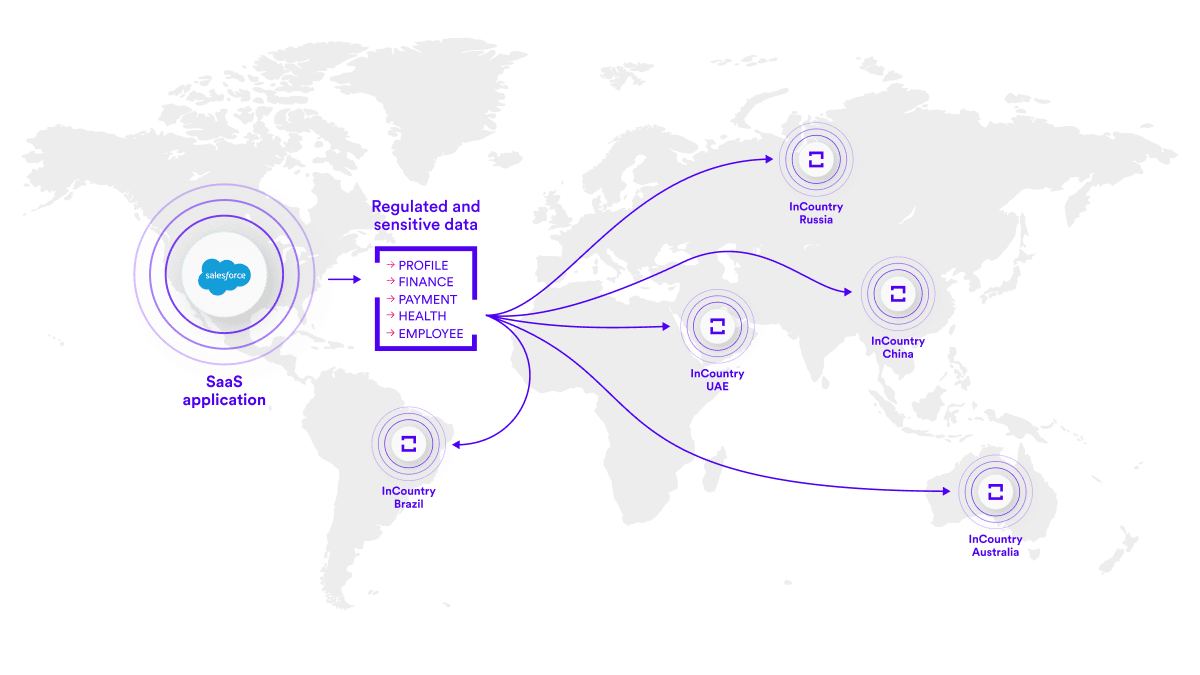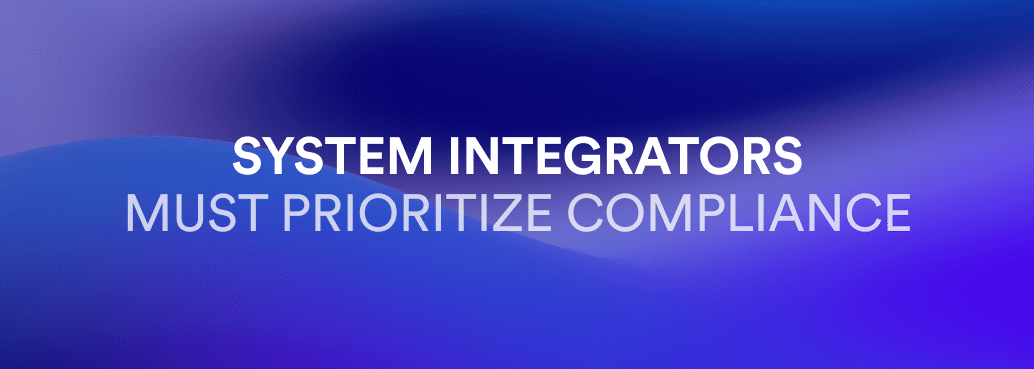The Situation
Like many software providers, Systems Integrators have had positive business developments during the pandemic, including the switch to remote work not hurting productivity and the overall rise in digitalization meaning more business opportunities. These developments bring new challenges in the years ahead, as the large-scale shifts both to remote work and to increased digitalization have created larger data streams than have ever existed before.
With a world so interconnected and online and the cloud taking center stage in many industries, particularly SaaS, properly managing data, including on global platforms like Salesforce, will prove to be a key element of which companies sink and which ones swim over the next decade. Since Systems Integrators play such a key role in helping businesses expand their offerings, they have the responsibility to provide the necessary data governance tools to the businesses they serve.
The digital transformation has not only migrated business processes online, but expanded them as the convenience of online services in industries such as fintech and ecommerce have compelled people to spend more money than ever before in these sectors. However, business does not have a sterling track record when it comes to managing individuals’ data, which first led to the rise in data protection regulations such as the EU’s GDPR. Two years into the COVID pandemic, with many still ordering groceries online and relying on giants like Amazon and Uber Eats to bring them necessities, the public is completely at the mercy of large companies and desperately needs protection from disingenuous corporate practices of manipulating and selling personal data.
Particularly in America, COVID decimated the small business community, resulting in tens of thousands of businesses closing and shrinking customer choice incomparably. Now that the few choices remaining in most spheres are large corporations, data residency is no longer a new idea to introduce a semblance of consumer rights to the internet-—it is the bastion of the public weary after years of being exploited for corporate gain.

As data protection regulations get passed (quickly in Asia and the Middle East, and not so quickly in the Western Hemisphere), consumers are gaining protections that can make them feel more comfortable shopping and browsing online, but the process needs to be symbiotic between the government, the people, and companies. If companies do not willingly buy in after years of bad practices, only conceding to data protections after being browbeaten by governments and under threat of monetary fines, the long-term likelihood of these regulations actually protecting consumers is low.
This is the next major opportunity for Systems Integrators.
The Solution
As unbiased experts consulting on a wide range of software, SIs can be the glue that keeps companies compliant with data regulations worldwide. A good working relationship between company and Systems Integrator is mutually beneficial, but SIs have to use their objective perspective to advocate for consumers, acting as liaison not just to help companies link and compose their stacks in an ever increasing cloud-focused world, but to help cement a healthy relationship between company and customer. This is especially true for Salesforce and its SIs, since as one of the most popular SaaS platforms around, it is not an exaggeration to say millions of companies are using Salesforce globally.
While SIs represent value alone for their ability to ease dozens of solutions onto a single platform—such as Salesforce—for companies to remain streamlined and adept, the further value they can add as a champion of data governance will tremendously help big business in a world where corporate expansion often drives profit. Among the countries with the 20 largest economies in the world, almost all of them have federal data protection regulations on the books or on the verge of being passed. However, due to a variety of reasons, each country’s protections often slightly differ from each other, meaning corporate expansion cannot operate as a one-size-fits-all approach even if the company is using a global SaaS provider like Salesforce.
The risk in running afoul of any government could have dire consequences for a company’s brand and bottom line, which is why compliance has gone from an afterthought in the business world of the late 20th century to a primary consideration today. SIs embracing that reality and urging their business partners to integrate data governance solutions will help to keep the SIs themselves relevant and business safer in the modern global environment.
Data regulations is a complex and dynamic sphere, with governments reacting both to public pressure and their own internal biases, a fact that can leave businesses stymied and scrambling for answers. If an SI does not have knowledge of this sphere and the appropriate SaaS solutions available, what value are they as a trusted long-term business partner as data becomes more and more crucial to how both governments and companies function? Salesforce itself knows this is a key issue of modern business, which is why they introduced Hyperforce a few years ago, but even that solution does not adequately address the need of businesses that need sensitive data localized in a variety of different countries simultaneously.

The next step in the evolution of Systems Integrators is not reacting to the explosion in popularity of the cloud, but in the vast compliance issues that have arisen because of it. By advocating for and pushing data governance solutions, SIs can simultaneously shield the public from unsavory corporate data usage and help businesses themselves walk the tightrope of corporate expansion and compliance.
InCountry’s Role in the Solution
This is why data governance platforms like InCountry will be so integral to business operations going forward. While companies are free to build and maintain compliance and data stacks in countries where they operate, the vastly more practical solution is to integrate software as part of your Salesforce platform. InCountry realized this and thus offers a customizable package on the Salesforce AppExchange, which will make data governance for companies using Salesforce a worry of the past. With such a ready-made solution and the global platform to host it in place, Salesforce SIs have everything they need to have their cake and eat it too.


